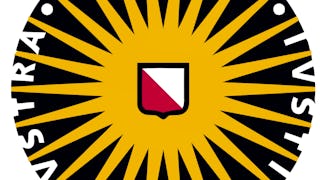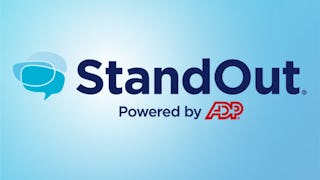- Browse
- Special Education
Results for "special education"
 Status: Free TrialFree TrialT
Status: Free TrialFree TrialTTecnológico de Monterrey
Skills you'll gain: Patient-centered Care, Patient Education And Counseling, Healthcare Ethics, Patient Communication, Care Management, Health Care, Preventative Care, Health Disparities, Professionalism, Health Promotion, Clinical Nutrition, Mental Health, Collaboration, Empathy, Social Determinants Of Health
4.8·Rating, 4.8 out of 5 stars26 reviewsBeginner · Course · 1 - 4 Weeks
 Status: FreeFreeU
Status: FreeFreeUUtrecht University
Skills you'll gain: Research, Intellectual Property, Peer Review, Ethical Standards And Conduct, Higher Education, Mentorship
4.7·Rating, 4.7 out of 5 stars64 reviewsBeginner · Course · 1 - 3 Months
 Status: Free TrialFree TrialA
Status: Free TrialFree TrialAAutomatic Data Processing, Inc. (ADP)
Skills you'll gain: Storytelling, Team Leadership, Recognizing Others, Team Building, Team Management, Self-Awareness, Personal Development, Professional Development, Employee Engagement, Communication Strategies, Mindfulness
4.4·Rating, 4.4 out of 5 stars11 reviewsBeginner · Course · 1 - 4 Weeks
 Status: PreviewPreviewP
Status: PreviewPreviewPPontificia Universidad Católica del Perú
Skills you'll gain: Hospitality and Food Services, Food and Beverage, Restaurant Management, Resource Management, Market Analysis, Market Opportunities, Business Modeling, Entrepreneurship, Innovation, Cost Management, Operational Efficiency
4.8·Rating, 4.8 out of 5 stars33 reviewsBeginner · Course · 1 - 4 Weeks
 Status: NewNewStatus: Free TrialFree TrialR
Status: NewNewStatus: Free TrialFree TrialRReal Madrid Graduate School Universidad Europea
Skills you'll gain: Marketing Strategies, Marketing, Branding, Global Marketing, Social Media Marketing, Brand Management, Loyalty Programs, Digital Marketing, Strategic Partnership, Event Planning, Consumer Behaviour, E-Commerce, Business Modeling, Augmented Reality, Price Negotiation, Virtual Reality, Blockchain, Business Analysis, Data Analysis, Artificial Intelligence
4.8·Rating, 4.8 out of 5 stars11 reviewsBeginner · Specialization · 3 - 6 Months
 Status: PreviewPreview
Status: PreviewPreviewSkills you'll gain: Business Strategy, Talent Management, Business Leadership, Leadership, Entrepreneurship, Organizational Strategy, Business Management, Business, Technology Strategies, Social Impact, Innovation
4.5·Rating, 4.5 out of 5 stars14 reviewsIntermediate · Course · 1 - 4 Weeks
 Status: PreviewPreviewN
Status: PreviewPreviewNNational Taiwan University
Skills you'll gain: Political Sciences, Culture, Ancient History, Governance, Intercultural Competence, World History, Cultural Diversity
4.7·Rating, 4.7 out of 5 stars25 reviewsIntermediate · Course · 1 - 3 Months
 Status: NewNewStatus: Free TrialFree TrialD
Status: NewNewStatus: Free TrialFree TrialDDuke University
Skills you'll gain: Telehealth, Patient Preparation, Vital Signs, Patient Evaluation, Clinical Assessment, Health Assessment, Health Care, Patient Education and Support, Telecommunications, Patient Communication, Virtual Environment, Mental Status Examination, Technical Support
4.9·Rating, 4.9 out of 5 stars19 reviewsBeginner · Course · 1 - 4 Weeks
 Status: Free TrialFree TrialL
Status: Free TrialFree TrialLL&T EduTech
Skills you'll gain: Construction Inspection, Construction, Building Design, Structural Engineering, Structural Analysis, Architectural Drawing, Industrial Design, Commercial Construction, Engineering Drawings, Technical Drawing, Engineering Design Process
5·Rating, 5 out of 5 stars8 reviewsIntermediate · Course · 1 - 4 Weeks
 Status: Free TrialFree TrialU
Status: Free TrialFree TrialUUniversity of California, Irvine
Skills you'll gain: Business Writing, Entrepreneurship, Communication, Business Reporting, Problem Solving, Time Management, Project Management, Negotiation, Professional Development, Research Reports, Business Communication, Finance, Presentations, Competitive Analysis, Critical Thinking
4.4·Rating, 4.4 out of 5 stars26 reviewsMixed · Course · 1 - 3 Months
 Status: PreviewPreviewC
Status: PreviewPreviewCColumbia University
Skills you'll gain: Care Coordination, Value-Based Care, Patient-centered Care, Health Informatics, Health Technology, Health Care, Risk Management, Patient Education and Support, Health Information Management, Patient Advocacy, Telehealth, Community and Social Work, Case Studies
4.7·Rating, 4.7 out of 5 stars30 reviewsBeginner · Course · 1 - 3 Months
 Status: Free TrialFree TrialU
Status: Free TrialFree TrialUUniversity of Michigan
Skills you'll gain: Statistics, Data Analysis, Statistical Programming, Descriptive Statistics, Exploratory Data Analysis, Python Programming
Intermediate · Course · 1 - 4 Weeks
Searches related to special education
In summary, here are 10 of our most popular special education courses
- Atención centrada en el paciente: Tecnológico de Monterrey
- Responsible Conduct of Research: Utrecht University
- Establishing Team Purpose: Automatic Data Processing, Inc. (ADP)
- Gestión de Emprendimientos Gastronómicos: Pontificia Universidad Católica del Perú
- Sports Marketing: The Technological Formula: Real Madrid Graduate School Universidad Europea
- El arte de emprender: de la idea al éxito: UBITS
- 東亞儒家:人文精神二(East Asian Confucianisms: Humanism (2)): National Taiwan University
- Telehealth Clinical Essentials: Duke University
- Construction aspects of Steel Buildings: L&T EduTech
- Proyecto Final de Éxito Profesional: University of California, Irvine










